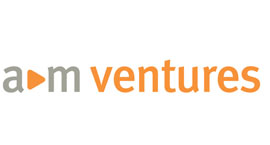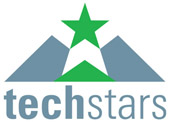
A brand new startup in West Los Angeles is hoping to make amateur sport players feel like superstars, giving them the tools that they need to organize and manage their sports leagues, pick up games, and teams. With Sportifik the founders want amateur athletes to have fun, meet new people, and keep up with sports that often fall to the wayside.
Still a little over two weeks away from launch, the team behind Sportifik is “throwing the pigskin around,” meaning they’re putting the finishing touches on their platform and making sure it’s ready for the after work league and the local pick up game.
In the meantime we got to talk with Marco Franzoni, Sportifik’s co-founder and CEO about this new twist on sports.

What is your startup called?
Our startup is called Sportifik. A mix between sports and fantasterrific, only with a k.
What does your company do?
We are creating a global community of athletes and changing the way people participate in sports. We are providing amateur athletes and avid sports fans with the best means to easily organize and manage their sporting activities through a user friendly one-stop-shop mobile and web solution. Our platform will enable users to seamlessly organize sports games in a fun and rewarding way while enabling them to meet members of their local communities who share a passion for the same sport.
Our goal is to push new boundaries, make any game feel like a national championship, and make every amateur player feel like a superstar.
Who are the founders, and what are their backgrounds
We are three co-founders and friends.
Marco, our CEO, is an all-around athlete hailing from Italy with a consulting background. He’s the soul of this operation. It’s his inspiration and drive that brought us together in a common belief that sports should be uniting people.
Josh, our CTO, is an avid golfer with various experiences in web development and startups. He’s the heart of the operation as he is the one keeping us going (as well as the most important person in our lives today).
Chris, our head of biz dev, is passionate about all sports and comes from investment banking and social enterprise backgrounds. He’s the brain at Sportifik – not in that he’s intelligent but he makes sure everything is running correctly and logically.
Where are you based?
We’re currently based in West LA where we think the outdoors environment is the best to start an active sports venture.
What’s the startup scene like where you are based?
Pretty amazing. For years the LA and Santa Monica startup scene have been growing. It’s a phenomenal environment of smart dedicated people who are always looking to help each other out. We’ve been really fortunate to kick things off on the shores of Silicon Beach.
What problem do you solve?
We solve the problem of having to spend copious amounts of times and several different platforms to organize sports games. We spent too much time every week trying to get people together at the same spot to play soccer or basketball for games that would inevitably get canceled anyway. We thought there’s a better solution out there.
Why now?
People are becoming more active and mobile and at the same time we’re busier than ever with a ton of different things to do. Finding the time for collective sports games has become harder but they’re no less important in our lives.
What are some of the milestones your startup has already reached?
We launched a beta product in April and collected a bunch of early adopters. We’re re-launching on the 31st of August (join us for our launch party through our website!).
We’ve also created a promotional clip to feature the community and outreach aspects of what we do. This includes supporting our friends who have a wheelchair basketball team and are looking to raise money for their upcoming season. If you are interested in helping Alvin and his team, get in touch with him at alvin.malave@gmail.com.
Finally, we’ve established an informal sports hierarchy internally. Josh is our golf master, Chris rules the ping pong table and Marco does pretty much everything damn well.
What are your next milestones?
Launching (see above)! We’re looking to get as many users as possible starting in West LA and the UCLA community and expanding as soon as possible to the rest of LA. We’re going to be looking to partner with local sports leagues, stores and venues to offer a more comprehensive service to our users and drive local businesses.
Where can people find out more? Any social media links you want to share?
Follow us on Facebook (www.facebook.com/sportifik), Twitter (www.twitter.com/sportifik_), WordPress (www.blog.sportifik.com), and youtube (www.youtube.com/sportifik)



















